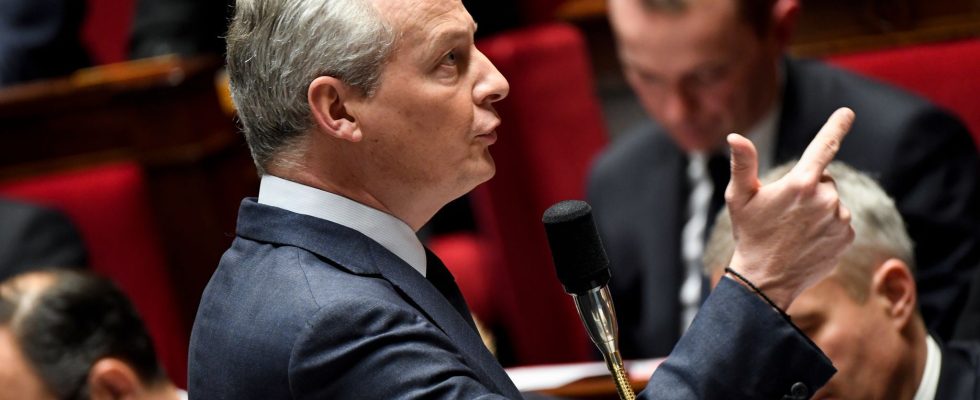The 49.3 season is fast approaching. After having taken it up 12 times during the previous parliamentary session, the executive now knows it is essential. Especially since the bills expected in the coming weeks concentrate most of the points of friction which crystallize the oppositions.
Taxation of large companies, ecological transition, housing, immigration… The bones of discord accumulate, as they do every year as the budget review approaches.
The Pisani-Ferry report embarrasses the executive
On the left, the government risks coming up against the arguments coming from a report that it itself commissioned: that of the economist Jean Pisani-Ferry on the impacts of climate action, which pleads in particular for “a exceptional and temporary levy […] on the financial assets of the wealthiest households” to finance the ecological transition.
Although it is facing a period of strong turbulence linked to the refusal of several figures from La France insoumise (LFI) to qualify Hamas as a terrorist movement, Nupes intends to offer the transcription of all the recommendations resulting from the report. Measures for many considered too punitive by the right wing of the majority, and by the elected representatives of the Les Républicains (LR) and National Rally (RN) parliamentary groups.
More isolated than ever, LFI will also ask to condition the reduction of a production tax (the CVAE) on environmental commitments, while its environmentalist and socialist allies wish to increase the taxation of commuting costs for the most expensive vehicles. more polluters.
A relative majority divided
The risk of a fragmentation of the majority also weighs on the presidential camp, dependent on partner political groups which are less and less masking their differences with the Renaissance line.
A handful of Horizons deputies plan in particular to defend the introduction of taxes on the “superprofits” of companies alongside their colleagues from Nupes, Liot and the RN. Already last year, a bill to this effect was tabled by the leader of the Democratic Deputies (DEM), Jean-Paul Mattei.
By putting, this year, on the table the increase in the tax on share buyback operations of the largest companies, the elected representative of Pyrénées-Atlantiques risks once again cracking the relative majority.
Another hot topic: the reform of the zero-interest loan (PTZ), announced by Bruno Le Maire at the end of September, which is characterized by a relaxation of the conditions of access to the system so that “six million additional French people benefit from it”. An initiative far from being unanimous among the majority. Unsurprisingly, several deputies from the ranks of Horizons and MoDem intend to veto the vote on the Finance bill, the examination of which begins this Tuesday evening at the Palais Bourbon.
And while the government is failing in the face of the housing crisis, short-term rentals, such as Airbnb, are in the sights of many elected officials. In committee, Renaissance MP Annaïg Le Meur tried to pass an amendment aimed at reducing the reduction rate from 71 to 40% in order to align them with the taxation of long-term rentals. But deemed too insufficient by part of the majority and by almost all of the left who wish to “go further” in the regulation of short-term rentals, the bill was ultimately not voted on.
